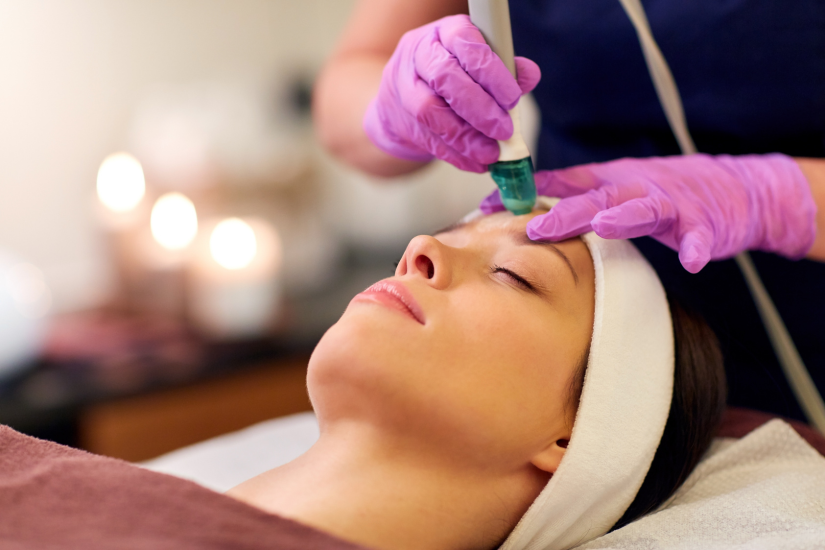Kelowna Optometry: Your Vision, Our Mission

Kelowna Optometrist with a Vision
At Kelowna Optometry, we are dedicated to providing exceptional eye care services to our community. Our team of experienced optometrists and friendly staff are committed to ensuring that every patient receives personalized attention and the highest quality of care. We offer comprehensive eye exams, advanced diagnostic technology, and a wide selection of fashionable eyewear to meet all your vision needs. Whether you’re looking for routine eye care, treatment for eye conditions, or the latest in eyewear trends, Kelowna Optometry is here to help you see clearly and look your best. Trust us with your vision, and experience the difference that expert care and a welcoming environment can make. Your eye health is our top priority, and we strive to make every visit a positive and informative experience. Visit Kelowna Optometry today and discover the best in eye care.
Inspired Eyes is Kelowna’s premier destination for exceptional eye care and stylish eyewear. We blend top-tier optometry services with a curated selection of fashionable eyeglasses, ensuring you see clearly and look your best. Discover the perfect harmony of health and style with our expert team and exclusive collections. Your vision deserves the best; we deliver just that at Inspired Eyes.
Fashion Meets Function
Inspired Eyes is more than just an eyeglass store; it’s a vision care destination dedicated to enhancing your sight and style. Founded to provide unparalleled eye care, our team of expert optometrists brings years of experience and a passion for eye health. We pride ourselves on using the latest technology to ensure precise diagnoses and treatments. At Inspired Eyes, customer satisfaction is our top priority, and we strive to create a welcoming environment where your vision needs are met with professionalism and care. Join us in our commitment to excellence and see the difference for yourself.
Comprehensive Eye Care Services
Inspired Eyes offers a full spectrum of eye care services to meet all your vision needs. Our comprehensive eye exams utilize advanced technology to ensure accurate diagnoses and personalized treatment plans. Whether you need contact lens fittings, management of eye conditions, or routine check-ups, our experienced optometrists are here to provide exceptional care. We are committed to maintaining your eye health with precision and expertise, ensuring you receive the best possible care in a comfortable and welcoming environment. Trust Inspired Eyes for all your eye care needs.
Fashionable Kelowna Eyewear Collection
At Inspired Eyes, ar should be functional and fashionable. Our curated collection features the latest trends and exclusive designs from top brands, ensuring you find the perfect pair to complement your style. Whether you’re looking for classic elegance or modern chic, our expert team will help you select frames that enhance your look and provide optimal comfort. With custom fitting services, we ensure your glasses look great and fit perfectly. Step into Inspired Eyes and discover eyewear that makes a statement.
Customer Testimonials
Our customers are at the heart of everything we do at Inspired Eyes. Hear from those who have experienced the difference our expert care and stylish eyewear make. From improved vision to boosted confidence, our satisfied clients share their stories of transformation. Discover how our personalized service and high-quality products have positively impacted their lives. Join the Inspired Eyes community and see why so many trust us with their eye care and fashion needs. Your vision and style are our top priorities, and our customers’ testimonials speak volumes about our commitment to excellence.
Community Involvement
At Inspired Eyes, we believe in supporting the community that supports us. We actively participate in local events, sponsor community programs, and partner with organizations to promote eye health and wellness in Kelowna. Our commitment extends beyond our store as we strive to make a positive impact through educational initiatives and charitable contributions. By choosing Inspired Eyes, you’re investing in your vision and supporting a business that cares deeply about the well-being of our community. Join us in our mission to enhance lives inside and outside our doors.
Experience the Magic of Venus Viva Skin Resurfacing
Welcome to the realm of transformative skincare, where science meets beauty, and your skin’s potential is redefined. Today, we explore the world of Venus Viva skin resurfacing, a groundbreaking approach to achieving your ideal skin. Enter the forefront of skincare, where state-of-the-art technology and expert techniques converge to unveil your true allure. Join us as we delve into the magic, science, and experiences that make Venus Viva a game-changer in the pursuit of youthful, vibrant skin.
The Science Behind Venus Viva
In the quest for flawless skin, understanding the science behind Venus Viva is the first step towards unlocking its skin-transforming potential. At its core, Venus Viva is a cutting-edge skin resurfacing technique that harnesses the power of fractional radiofrequency (RF) technology. Now, let’s dive into the fascinating world of Venus Viva and its science-backed approach to rejuvenating your skin.
The Fractional Radiofrequency Technology
Venus Viva operates on the principle of fractional RF, a groundbreaking technology that stimulates collagen production and promotes skin renewal. During a Venus Viva treatment session, specialized handpieces deliver controlled RF energy into the deeper layers of your skin. This energy creates micro-injuries, triggering your skin’s natural healing response.
In response to these micro-injuries, your skin produces new collagen and elastin, the essential building blocks of youthful, resilient skin. As a result, your skin gradually becomes firmer, smoother, and more radiant. The fractional approach ensures that only a fraction of your skin is treated during each session, leaving surrounding tissue intact for a faster healing process.
Benefits of Fractional Radiofrequency
The magic of Venus Viva lies in the remarkable benefits of fractional RF:
- Improved Skin Texture: Over time, as collagen production increases, your skin’s texture becomes noticeably smoother, reducing the appearance of fine lines, wrinkles, and acne scars.
- Even Skin Tone: Fractional RF helps fade hyperpigmentation and sunspots, promoting a more balanced and youthful complexion.
- Minimized Pore Size: Enlarged pores are a common concern, but Venus Viva can help minimize their appearance, leaving you with refined, refreshed skin.
- Scar Reduction: Whether you’re dealing with acne scars or other types of scarring, Venus Viva can significantly improve their texture and appearance.
Now that we’ve unveiled the captivating science behind Venus Viva, let’s journey deeper into the actual experience of this remarkable skin resurfacing technique and witness its transformative effects.
The Venus Viva Treatment Session
Stepping into a Venus Viva treatment session is stepping into a world of personalized skincare. Each session begins with a thorough consultation with a certified skincare professional. During this consultation, your skincare goals are discussed, and your skin type is evaluated to tailor the treatment specifically to your unique needs.
As you settle into the treatment chair, the magic begins. The Venus Viva handpiece, equipped with advanced technology, gently glides across your skin. You’ll feel minimal discomfort, as a topical numbing cream is applied to ensure your comfort throughout the session.
The treatment typically lasts around 30-60 minutes, depending on the targeted area and the specific technique used. Many individuals find this time to be an opportunity to relax and unwind, knowing that they are on the path to rejuvenated skin.
Why Venus Viva Stands Out
In a world of skincare options, Venus Viva emerges as a standout choice, offering a unique set of advantages that make it a total game-changer. Let’s explore what sets Venus Viva apart and why it’s capturing the attention of those seeking radiant, youthful skin.
Precise Control and Customization
One of the defining features of Venus Viva is its precision and customization. The fractional RF technology allows for precise control over the depth and intensity of the treatment, ensuring that it addresses your specific skincare concerns. Whether you’re looking to reduce wrinkles, diminish scars, or even out your skin tone, Venus Viva can be tailored to your needs.
Minimal Downtime
Unlike more invasive procedures that may require extended downtime, Venus Viva boasts minimal post-treatment recovery. Most individuals can return to their daily activities immediately after a session, with only minor redness and swelling that typically subsides within a day or two. This means you can rejuvenate your skin without disrupting your busy life.
Versatility and Effectiveness
Venus Viva’s versatility is another reason it shines in the world of skincare. It’s effective for various skin types and can be used on different areas of the face and body. Whether you’re addressing acne scars on your cheeks, fine lines around your eyes, or uneven texture on your neck, Venus Viva can deliver noticeable results.
Safe and Non-Invasive
Safety is paramount when it comes to skincare, and Venus Viva checks all the boxes. It’s a non-invasive procedure that minimizes the risk of complications. The fractional RF technology is FDA-approved, assuring that you’re in capable hands.
The Venus Viva Difference
While there are numerous skin resurfacing techniques available, Venus Viva’s precision, minimal downtime, versatility, and safety make it a standout choice. The transformative power of Venus Viva is not just a promise; it’s a reality for countless individuals who have experienced its remarkable effects firsthand.
In the next section, we’ll guide you through the steps to prepare for a Venus Viva treatment, ensuring you get the most out of your skincare journey.
Your Journey to Radiant Skin
Now that we’ve unraveled the wonders of Venus Viva, it’s time to prepare for your own transformative skincare experience. Here’s a step-by-step guide on what to expect and how to make the most of your Venus Viva treatment.
1. Consultation and Assessment
Your Venus Viva journey begins with a thorough consultation with a certified skincare professional. During this initial meeting, you’ll discuss your skincare goals, concerns, and expectations. The skincare expert will evaluate your skin type and condition to create a personalized treatment plan tailored to your unique needs.
2. Pre-Treatment Preparation
Before your Venus Viva session, there are a few essential steps to follow:
- Avoid sun exposure: Protect your skin from excessive sun exposure in the weeks leading up to your treatment. Sunburned or tanned skin can affect the procedure’s effectiveness.
- Discontinue certain products: Your skincare professional may recommend discontinuing specific skincare products or treatments in the days leading up to Venus Viva.
- Arrive makeup-free: It’s essential to arrive for your session with a clean, makeup-free face.
3. The Venus Viva Session
During the treatment, you’ll be comfortably positioned, and a topical numbing cream will be applied to ensure your comfort. The Venus Viva handpiece will be gently moved across your skin, delivering controlled RF energy. You may experience a warm, tingling sensation, but any discomfort is typically minimal.
4. Post-Treatment Care
After your session, your skin may appear slightly red and swollen, similar to a mild sunburn. This is entirely normal and should subside within a day or two. Your skincare professional will provide specific post-treatment instructions, including:
- Apply a gentle moisturizer to keep your skin hydrated.
- Avoid direct sunlight and wear sunscreen daily.
- Follow a skincare routine tailored to your needs.
5. Maintenance and Follow-Up
To maintain and maximize your results, multiple Venus Viva sessions are recommended, spaced a few weeks apart. Each session contributes to the gradual improvement of your skin’s texture and appearance.
As you embark on your Venus Viva journey, remember that patience is key. The full benefits of the treatment become increasingly visible as your skin’s natural rejuvenation process unfolds. With the guidance of a skilled skincare professional, you’re on your way to achieving the radiant, youthful skin you’ve always desired.
In the world of skincare, Venus Viva emerges as a beacon of hope for those seeking transformative results with minimal downtime. Its precision, versatility, and safety set it apart as a remarkable choice. Embrace this cutting-edge skincare solution and experience the beauty of revitalized skin like never before.
Revitalizing Your Skin: The Power of Microneedling and Microchanneling
I’m excited to tell you about two transformative techniques have been making waves in the facial industry—microneedling and microchanneling. These two skincare marvels have emerged as game-changers, promising to rejuvenate and revitalize your skin in ways you may have never imagined.
The allure of microneedling and microchanneling lies in their scientific prowess, their ability to address a range of skincare concerns, and the promise of a youthful, radiant complexion. In this comprehensive guide, we will unravel the science behind these techniques, delve into the remarkable benefits they offer, and provide insights into what you can expect during and after treatment.
Whether you’re new to these procedures or a skincare aficionado, our exploration of microneedling and microchanneling will equip you with the knowledge you need to make informed decisions and unlock your skin’s natural radiance.
Understanding Microneedling
Microneedling, also known as collagen induction therapy, is a minimally invasive procedure that involves the use of fine needles to create controlled micro-injuries on the skin’s surface. While the term “injuries” may sound daunting, these tiny punctures are precisely what stimulate the skin’s natural healing process.
Here’s how it works: When the skin is pricked with these fine needles, it triggers a cascade of reactions. The body responds by producing collagen and elastin, essential proteins that maintain skin’s elasticity and firmness. As the skin repairs itself, it becomes rejuvenated, and over time, the appearance of fine lines, wrinkles, acne scars, and even stretch marks can be significantly reduced.
Magnifying the Impact with Microchanneling
Now, let’s introduce microchanneling, a technique that takes microneedling to the next level. microchannels, also known as Collagen Induction Therapy with Microchannels (CITMC), combines the benefits of traditional microneedling with the infusion of specialized skincare products.
During a microchanneling session, fine needles create microchannels in the skin. These microchannels serve as pathways for the delivery of potent serums, growth factors, and other skincare formulations deep into the dermal layers. The synergy of these micro-injuries and targeted product infusion magnifies the results, leading to enhanced collagen production and improved skin texture.
The Remarkable Benefits
Microneedling and Microchanneling offer a multitude of benefits that make them highly sought-after skincare treatments. Some of the remarkable advantages include:
- Collagen Boost: Both techniques stimulate collagen production, resulting in firmer, more youthful-looking skin.
- Improved Texture: The procedures can reduce the appearance of fine lines, wrinkles, acne scars, and enlarged pores.
- Enhanced Product Absorption: Microchanneling enhances the absorption of skincare products, ensuring they penetrate deeper for optimal results.
- Minimal Downtime: These treatments are minimally invasive and typically require minimal downtime, making them convenient for busy individuals.
Now that we’ve unveiled the science behind microneedling and microchanneling let’s explore what you can expect during the treatment process and the journey to radiant, rejuvenated skin.
The Microneedling and Microchanneling Experience
Preparing for Your Skin’s Transformation
Your skincare professional will guide you through the pre-treatment process, which typically includes:
- Consultation: Your journey begins with a consultation with a skilled skincare professional. During this session, you’ll discuss your skincare goals, concerns, and any medical history that may impact the treatment.
- Skincare Routine Adjustments: Depending on your specific needs, your skincare professional may recommend certain adjustments to your routine. This could include discontinuing certain products or medications that might increase sensitivity.
- Sun Protection: It’s essential to protect your skin from excessive sun exposure in the days leading up to your treatment. Sunburned or overly tanned skin can be more sensitive during the procedure.
The Treatment: What to Expect
On the day of your microneedling or microchanneling treatment, you’ll arrive at the skincare clinic or spa with anticipation. Here’s what you can typically expect during the session:
- Cleansing: Your skin will be thoroughly cleansed to remove any makeup, oils, or impurities.
- Topical Anesthesia: To minimize discomfort, a topical numbing cream may be applied to the treatment area. It takes some time to take effect, so you may have a short wait before the procedure begins.
- Microneedling or Microchanneling: The treatment will commence, with the skincare professional using a specialized device to create micro-injuries or microchannels on your skin. The process is generally well-tolerated, thanks to the numbing cream.
- Product Infusion (Microchanneling Only): If you’re undergoing Microchanneling, this is the stage where specialized skincare products are infused into your skin through the microchannels. These products are chosen to address your specific skincare concerns.
- Cooling and Soothing: After the procedure, your skin may be gently cooled and soothed to reduce any redness or discomfort.
The Road to Recovery and Post-Treatment Care
Following your microneedling or microchanneling session, it’s crucial to take proper care of your skin to maximize the benefits and minimize any side effects. Here’s how you can ensure a smooth recovery:
- Redness and Swelling: Some redness and swelling are normal after the treatment, but they typically subside within a few days. Your skincare professional may recommend a gentle, soothing skincare routine to manage these effects.
- Sun Protection: Protect your skin from direct sun exposure in the days following the procedure. Sunscreen is your best friend during this time.
- Avoid Harsh Products: For a few days post-treatment, steer clear of harsh skincare products like exfoliants or active ingredients. Stick to gentle, hydrating products to nurture your healing skin.
- Follow-Up Appointments: Depending on your skincare goals, you may require multiple sessions spaced several weeks apart. Your skincare professional will provide guidance on your personalized treatment plan.
Radiance Beyond Imagination: Post-Treatment Glow
After undergoing microneedling or Microchanneling, you’ll find yourself on a path toward radiant and youthful-looking skin. These treatments offer a myriad of benefits that extend beyond the immediate post-treatment glow. Let’s delve into what you can expect in terms of results and long-term advantages:
The Results of microneedling and microchanneling
- Firmer, Smoother Skin: One of the most noticeable effects is the improvement in skin texture. Over time, as collagen production is stimulated, your skin becomes firmer, smoother, and more supple. Fine lines and wrinkles may visibly diminish, and acne scars can become less pronounced.
- Enhanced Skin Tone: Microneedling and Microchanneling can help even out your skin tone, reducing the appearance of hyperpigmentation and sunspots. This leads to a more balanced and youthful complexion.
- Reduced Pore Size: If enlarged pores have been a concern, these treatments can help minimize their appearance, leaving you with a refined and refreshed look.
- Scar Improvement: Whether you’re dealing with acne scars or other types of scarring, Microneedling and Microchanneling can contribute to significant improvements in the texture and appearance of scars.
Navigating Your Microneedling and Microchanneling Journey
Choosing the Right Professional
The expertise of your skincare professional plays a pivotal role in the success of your treatment. I recommend Oval Aesthetics who use StemCell Microneedling and DP4 StemCell Microchanneling to help the body’s collagen synthesize to firm the skin from it’s foundation.
Here are some key considerations to ensure you’re in the right hands:
- Certification and Training: Verify that your chosen professional is certified and well-trained in Microneedling and Microchanneling techniques. Their qualifications and experience are paramount.
- Consultation: A thorough initial consultation is essential. Your professional should discuss your skincare goals, evaluate your skin type, and tailor the treatment plan to your unique needs.
- Reviews and Recommendations: Seek out reviews and recommendations from previous clients. Happy and satisfied clients often share their experiences, offering insights into what you can expect.
- Hygiene and Safety: Ensure that the clinic or spa adheres to strict hygiene and safety protocols. Sterilized equipment and a clean environment are non-negotiable.
FAQ
- Is it painful? While discomfort is minimal, some individuals may experience mild sensations during the procedure. Topical numbing cream is applied to alleviate any potential discomfort.
- How long does it take? A single session typically lasts around 30-60 minutes, depending on the treatment area and technique.
- When will I see results? Initial results, including a radiant glow, can be visible shortly after the treatment. However, the full effects, such as improved skin texture and reduced wrinkles, become more noticeable over several weeks as collagen production continues.
Elevating Your Skincare Routine with This Dynamic Duo
Incorporating microneedling and microchanneling into your skincare routine can be a transformative step. To maximize the benefits and maintain your skin’s radiance, consider the following:
- Consistency: Depending on your skincare goals, you may need multiple sessions spaced several weeks apart. Consistency is key to achieving and preserving your desired results.
- Professional Guidance: Continue to consult with your skincare professional for advice on skincare products and post-treatment care. They can recommend formulations that complement your treatments.
- Personalized Approach: Your skincare journey should be tailored to your unique needs. Your professional will adjust the treatment plan as necessary to address specific concerns.
With these insights into selecting the right professional, addressing common questions, and integrating Microneedling and Microchanneling into your skincare routine, you’re well-prepared to embark on a transformative journey towards timeless beauty.
Your radiant, rejuvenated skin is within reach.
The Science Behind pH-Balanced Skincare: Unveiling the Secrets to Healthy Skin
If you’re like me, you are always wanting to learn more about how best to care for your skin. We often hear about various skincare trends, miracle ingredients, and cutting-edge treatments. While these elements undoubtedly play a role in our skincare routines, there’s a fundamental aspect that sometimes escapes our attention—the science of pH-balanced skincare. This hidden gem in the world of skincare holds the key to maintaining a healthy and vibrant complexion.
In this journey through the intricate world of pH-balanced skincare, we’ll peel back the layers of scientific understanding to reveal how the pH of your skincare products can impact the health and appearance of your skin. We’ll explore the pH scale, delve into the fascinating concept of the acid mantle, and discover the advantages of using pH-balanced skincare products.
So, fasten your seatbelts as we embark on a scientific expedition that promises to demystify the secrets of pH in skincare. Get ready to uncover the vital role that pH plays in maintaining the integrity of your skin’s protective barrier and how you can harness this knowledge to unlock the full potential of your skincare routine. It’s time to dive deep into the science behind pH-balanced skincare and unveil the path to healthier, more beautiful skin.

Understanding the pH Scale
The Basics of pH Measurement
Before we delve into the world of pH-balanced skincare, it’s essential to grasp the fundamentals of pH measurement. The term “pH” stands for “potential of hydrogen,” and it represents a scale that measures the acidity or alkalinity of a substance. This scale ranges from 0 to 14, with 7 being neutral.
Substances with a pH lower than 7 are considered acidic, while those with a pH higher than 7 are alkaline or basic. The lower the pH value, the more acidic the substance, and conversely, the higher the pH value, the more alkaline it is. Understanding this scale is vital because it allows us to gauge the acidity or alkalinity of various skincare products.

How pH Affects Your Skin’s Acid Mantle
Now that we’re familiar with the pH scale, let’s explore its relevance to our skin. Our skin has a natural protective barrier known as the acid mantle. This thin, slightly acidic film covers the surface of our skin and plays a crucial role in maintaining its health and well-being.
The acid mantle acts as a shield against external aggressors, such as bacteria, pollutants, and irritants. It also helps regulate the skin’s hydration by preventing excessive moisture loss. To fulfill these functions effectively, the acid mantle needs to maintain a slightly acidic pH level, typically around 4.5 to 5.5. This acidity is what keeps our skin’s protective barrier robust and resilient.
The Ideal pH Range for Healthy Skin
For the sake of our skin’s health and balance, we must select skincare products that align with its natural pH. This is where the concept of pH-balanced skincare comes into play. pH-balanced products are formulated to match the skin’s natural pH, helping to preserve the integrity of the acid mantle.
Using skincare products within the ideal pH range of 4.5 to 5.5 can contribute to skin that looks and feels its best. When the acid mantle remains undisturbed, it’s better equipped to fend off environmental stressors, maintain proper hydration levels, and support overall skin health.
Now that we’ve laid the foundation of pH measurement and its relevance to our skin’s acid mantle, we’re ready to explore the deeper layers of the science behind pH-balanced skincare. In the sections that follow, we’ll unravel the intricate relationship between pH and the skincare products we use daily, helping you make informed choices that promote healthier, more balanced skin.

The Acid Mantle: Skin’s Natural Protector
What Is the Acid Mantle?
To truly appreciate the importance of pH-balanced skincare, we must first understand the concept of the acid mantle—a remarkably sophisticated defense mechanism.
The acid mantle is a fine, slightly acidic film that covers the surface of our skin. Composed of sebum (skin oil), sweat, and natural moisturizing factors (NMFs), this delicate shield has a pH level that typically falls within the range of 4.5 to 5.5. It’s this gentle acidity that gives the acid mantle its name.
How the Acid Mantle Defends Your Skin
Think of the acid mantle as your skin’s personal bodyguard. Its primary role is to protect your skin from external threats and maintain its well-being. Here’s how it accomplishes these vital tasks:
Bacterial Defense: The slightly acidic pH of the acid mantle creates an inhospitable environment for harmful bacteria. It acts as a natural barrier that discourages the growth of pathogens on your skin’s surface.
Moisture Regulation: The acid mantle helps regulate your skin’s hydration by preventing excessive water loss. It does this by locking in moisture and preventing it from evaporating into the environment.
Skin Health: A well-maintained acid mantle contributes to overall skin health. It keeps your skin soft, supple, and resilient, reducing the risk of dryness, irritation, and sensitivity.
The Consequences of pH Imbalance
When the pH of your skin strays from its ideal range, either becoming too acidic or too alkaline, the consequences can be significant. Here’s what can happen when the delicate balance of the acid mantle is disrupted:
Dryness and Irritation: An overly alkaline environment can lead to dry, irritated skin. It weakens the skin’s barrier function, making it more susceptible to moisture loss and external irritants.
Acne and Breakouts: A disrupted acid mantle can create an environment conducive to acne-causing bacteria. This can result in an increase in breakouts and blemishes.
Sensitivity: Altered pH levels can lead to increased skin sensitivity. You may find your skin reacting more strongly to skincare products, environmental factors, or even changes in weather.
Understanding the vital role of the acid mantle underscores the significance of pH-balanced skincare products. These products are specifically formulated to support the natural pH of your skin, helping to preserve the integrity of this essential protective barrier. In the next section, we’ll explore how pH-balanced skincare can maintain your skin’s health and beauty.

The Science of pH-Balanced Skincare
pH-Neutral vs. pH-Balanced Products
In the world of skincare, it’s common to encounter the terms “pH-neutral” and “pH-balanced.” While they might sound similar, they hold distinct meanings.
pH-Neutral: Products labeled as pH-neutral have a pH level of 7, which is considered neutral on the pH scale. These products neither add acidity nor alkalinity to your skin. While they might not disrupt your skin’s pH, they also don’t actively support the acid mantle’s protective functions.
pH-Balanced: On the other hand, pH-balanced skincare products are specifically formulated to match the natural pH of your skin, which typically falls within the range of 4.5 to 5.5. By maintaining this slightly acidic pH, these products support the acid mantle’s protective abilities and help keep your skin healthy and balanced.
How pH-Balanced Skincare Maintains Skin Health
The secret behind the effectiveness of pH-balanced skincare lies in its ability to work harmoniously with your skin’s natural protective barrier. When you use pH-balanced products, you’re essentially providing your skin with the support it needs to stay resilient and vibrant.
Here’s how pH-balanced skincare maintains your skin’s health:
Preserves the Acid Mantle: pH-balanced products help keep your skin’s acid mantle intact. By not disturbing its natural pH, these products allow your skin to function optimally in protecting itself from external aggressors.
Reduces Irritation: Since pH-balanced products align with your skin’s pH, they are less likely to cause irritation or disrupt the skin’s barrier function. This makes them suitable for sensitive skin types.
Enhances Product Efficacy: pH-balanced skincare products can enhance the efficacy of other products you use. When your skin’s pH is in balance, it can better absorb and benefit from the active ingredients in your skincare routine.
Choosing the Right Products for Your Skin’s pH
Selecting pH-balanced skincare products is a wise choice for anyone looking to maintain healthy and balanced skin. These products are designed to provide optimal care and support for your skin’s natural protective barrier.
To incorporate pH-balanced skincare into your routine, start by checking the product labels. Look for indications that the product is pH-balanced or formulated to match your skin’s natural pH. By making this small yet significant change, you can empower your skincare regimen to promote the health and beauty of your skin.
pH-Balanced Skincare in Action
Building a pH-Friendly Skincare Routine
Now that we’ve uncovered the science behind pH-balanced skincare and understood its importance, it’s time to put this knowledge into action. Building a pH-friendly skincare routine can be a transformative step in your quest for healthy, radiant skin.
Cleansers and Toners: Start with a pH-balanced cleanser. This ensures that you’re not stripping your skin of its natural oils or altering its pH balance during the cleansing process. Follow up with a pH-balanced toner to prepare your skin for the next steps in your routine.
Serums and Moisturizers: When selecting serums and moisturizers, opt for products that are pH-balanced or close to your skin’s natural pH. These products will not only hydrate your skin but also help maintain its pH balance.
Sunscreen: Even your sunscreen should be pH-balanced. Sunscreens with a pH that matches your skin’s natural acidity provide effective protection against UV rays without disturbing your skin’s pH.

The Benefits of pH-Balanced Cleansers and Toners
Cleansers and toners play a pivotal role in your skincare routine. Using pH-balanced options for these products can yield several benefits:
Gentle Cleansing: pH-balanced cleansers effectively remove impurities without over-drying or irritating your skin. They leave your skin clean and refreshed.
Balanced Hydration: pH-balanced toners help rebalance your skin’s pH after cleansing, preparing it to absorb serums and moisturizers more effectively.
Reduced Sensitivity: pH-balanced products are less likely to cause sensitivity or redness, making them suitable for those with sensitive or reactive skin.
Common Myths and Misconceptions About pH in Skincare
As you explore and implement a pH-balanced skincare routine, it’s essential to debunk some common myths and misconceptions:
Higher pH Means Better Clean: Contrary to this belief, higher pH cleansers can strip your skin’s natural oils, leaving it dry and vulnerable.
All Products Should Be Acidic: While pH-balanced cleansers and toners are essential, not all skincare products need to be acidic. Serums and moisturizers can have slightly higher pH levels while still being effective.
pH Doesn’t Matter for Dry Skin: pH matters for all skin types. Even if you have dry skin, maintaining the acid mantle’s balance is crucial for overall skin health.
By incorporating pH-balanced skincare products into your daily routine and dispelling these myths, you’re well on your way to achieving healthier, more beautiful skin.
Remember that pH-balanced skincare is not just a trend; it’s a scientifically backed approach to nurturing your skin’s health. By choosing products that align with your skin’s natural pH, you can support your skin’s protective barrier, reduce irritation, and enhance the effectiveness of your skincare routine. It’s a small adjustment that can make a world of difference in your journey to glowing, balanced skin.
Ageless Beauty: The Benefits of Regular Facials
In the quest for radiant and ageless beauty, we often find ourselves navigating an ever-expanding sea of skincare products, each promising miracles in a bottle. While effective skincare products undoubtedly play a crucial role, there’s an often overlooked secret to achieving that coveted glow: regular facials.
Welcome to the world of ageless beauty, where the benefits of regular facials are anything but a well-kept secret. In this journey, we’ll uncover the science behind skincare, explore the transformative power of professional estheticians, and reveal how tailored facial treatments can be your ticket to a complexion that defies the hands of time.
But regular facials offer more than just surface-level beauty. They extend their tender care beyond the skin, delving into the realms of stress relief, mental well-being, and preventive care. So, fasten your seatbelts as we embark on this voyage to discover why regular facials are the secret to unlocking ageless beauty—because it’s about time you uncover the wonders they hold.

The Science of Skincare
Understanding Your Skin’s Needs
To truly appreciate the benefits of regular facials, we must first delve into the science of skincare. Your skin, the body’s largest organ, isn’t a one-size-fits-all entity. It has unique needs, influenced by factors such as your age, skin type, and environmental exposures. Regular facials offer a customized approach, allowing expert estheticians to assess your skin and tailor treatments to address your specific concerns.
The magic of regular facials lies in their ability to go beyond the surface. While at-home skincare routines are essential, they often lack the professional touch that can delve deep into your skin’s layers. Estheticians are skilled in identifying underlying issues, such as clogged pores, uneven texture, or signs of premature aging, and can formulate treatments to tackle these challenges effectively.
The Expertise of a Professional Esthetician
One of the primary advantages of regular facials is the guidance and expertise of a professional esthetician. These skincare specialists possess in-depth knowledge of skin anatomy, product formulations, and the latest industry trends. When you entrust your skin to an esthetician, you’re benefiting from their years of training and experience.
Estheticians can perform a thorough analysis of your skin, determining its specific needs and any areas of concern. This knowledge is the foundation upon which they craft a personalized facial treatment plan.
Whether you’re dealing with acne, dryness, hyperpigmentation, or fine lines, your esthetician can select the most suitable products and techniques to address these issues effectively.
Tailored Treatments for Every Skin Type
Another reason to embrace regular facials is the diversity of treatments available to cater to various skin types. Whether you have oily, dry, sensitive, or combination skin, there’s a facial treatment designed to suit your unique needs.
For those with oily or acne-prone skin, treatments may focus on deep cleansing, exfoliation, and pore detoxification. Dry skin types can benefit from hydrating and nourishing facials that replenish moisture and restore a healthy glow. Even sensitive skin can find solace in specialized treatments that soothe and calm irritation.
The bottom line is this: regular facials are not a one-size-fits-all solution but a customized approach to skincare that ensures your skin receives the care and attention it deserves. By understanding your skin’s needs and relying on the expertise of estheticians, you can discover the true potential of your complexion.

Benefits Beyond Beauty
The Glowing Complexion
At the heart of regular facials lies a simple yet profound promise: a glowing complexion. Imagine your skin looking refreshed, rejuvenated, and positively radiant. This transformation is not a mere illusion; it’s a tangible result of the meticulous care and expertise that facials provide.
Regular facials are like a reset button for your skin. They remove built-up dirt, oil, and dead skin cells that can dull your complexion. Through exfoliation, deep cleansing, and extraction, facials unveil the fresh, vibrant skin hiding beneath the surface. The result? A complexion that not only looks youthful but feels remarkably smooth and soft to the touch.
Stress Relief and Mental Well-being
While we often associate facials with external beauty, their benefits extend far beyond the surface. One of the most underestimated advantages of regular facials is the profound relaxation and stress relief they offer. These treatments provide a sanctuary of calmness in our fast-paced lives, allowing you to escape the stresses of the day.
The soothing ambiance of a spa or skincare clinic, combined with gentle massage techniques and the aromatic scents of skincare products, can transport you to a realm of tranquility. It’s a time to unwind, to disconnect from the outside world, and to focus solely on your well-being. The stress-relieving effects of regular facials can be felt not only in your skin but also in your mental and emotional state.
Preventive Care and Anti-Aging
When it comes to skincare, prevention is often more effective than correction. Regular facials play a pivotal role in preventive skincare by addressing potential issues before they become major concerns. They help maintain your skin’s health and vitality, preserving its youthful appearance for years to come.
Facials often include treatments like masks, serums, and moisturizers rich in antioxidants, vitamins, and other skin-loving ingredients. These nourishing components combat free radicals, the culprits behind premature aging. By consistently providing your skin with these rejuvenating treatments, you’re essentially creating a shield against the signs of aging, including fine lines, wrinkles, and sagging.
Regular facials are not just about achieving a glowing complexion; they’re about nourishing your skin, promoting relaxation, and safeguarding your youthful radiance. They’re a holistic approach to skincare that encompasses both the physical and emotional aspects of well-being.
As we continue through the world of facial treatments, we’ll explore the different types of facials available and how each contributes to your path toward ageless beauty.

Types of Facials: From Classic to Innovative
Classic Facials: Timeless Beauty
Classic facials are the cornerstone of professional skincare, offering timeless beauty and a comprehensive approach to maintaining healthy, radiant skin. These treatments are the foundation upon which all other facial options are built, focusing on the fundamental elements of cleansing, exfoliating, and rejuvenating.
A typical classic facial involves a thorough cleansing of the skin to remove impurities, followed by gentle exfoliation to slough off dead skin cells. Extraction may also be performed to clear clogged pores. A soothing massage and the application of a mask tailored to your skin type are the crowning moments of a classic facial, leaving you with a fresh and revitalized complexion.
Specialized Facials: Targeted Solutions
While classic facials provide a well-rounded approach to skincare, specialized facials are designed to address specific concerns in a more targeted manner. These treatments cater to a wide range of skin issues, from acne and hyperpigmentation to sensitivity and aging.
Specialized facials often incorporate advanced techniques and products that contain potent ingredients to tackle specific problems. For instance, an anti-aging facial might include powerful serums with peptides and retinol, while a brightening facial could feature ingredients like vitamin C and alpha hydroxy acids.
Cutting-Edge Treatments: The Future of Skincare
Innovative facials represent the forefront of skincare, harnessing the latest technologies and formulations to deliver exceptional results. These treatments often combine traditional facial techniques with state-of-the-art equipment, providing a holistic approach to rejuvenation.
Examples of cutting-edge facials include microdermabrasion, which uses fine crystals to exfoliate the skin, and microcurrent therapy, which uses low-level electrical currents to stimulate facial muscles and tighten the skin. Light-based treatments, such as LED therapy and IPL (Intense Pulsed Light), are also gaining popularity for their ability to address various skin concerns.
Whether you opt for a classic facial to maintain your skin’s health, a specialized facial to target specific issues, or a cutting-edge treatment for a revolutionary experience, the world of facials offers a diverse range of options to suit your unique needs.

The Journey to Ageless Beauty
Finding the Right Esthetician
As you embark on your quest for ageless beauty through regular facials, one crucial factor that can make or break your experience is the esthetician you choose. Finding the right skincare professional is akin to discovering a trusted confidant for your skin. It’s a relationship built on trust, expertise, and a shared commitment to your skin’s well-being.
When seeking an esthetician, consider their qualifications, experience, and reputation. Look for professionals who have received proper training and certification from reputable institutions. Don’t hesitate to ask for recommendations from friends or read online reviews to gauge the experiences of others. If you’re in Kelowna, we recommend going to Oval Aesthetics. They offer a variety of impressive high end facial treatments that deliver the results you want.
Building a rapport with your esthetician is essential, as they will be your guide on this journey. Effective communication is key. Be open about your skincare concerns, preferences, and goals. A skilled esthetician will listen attentively and tailor treatments to address your specific needs.
Building a Skincare Routine
Regular facials are an integral part of your skincare journey, but they are not a standalone solution. To maintain the results and continue progressing toward ageless beauty, it’s essential to build a complementary skincare routine.
Your esthetician can play a pivotal role in helping you establish an at-home regimen that aligns with the goals of your facials. This routine may include cleansers, serums, moisturizers, and sunscreens carefully selected for your skin type and concerns.
Consistency is key when it comes to skincare routines. Regular facials provide a professional touch, while your daily regimen reinforces and prolongs the benefits of those treatments. By working hand-in-hand with your esthetician, you can create a harmonious routine that ensures your skin remains radiant and youthful.
Embracing the Power of Regular Facials
As you explore the transformative benefits of regular facials, remember that it’s not just about the destination; it’s about the journey itself. Regular facials offer more than just surface-level beauty; they provide an opportunity to prioritize self-care, relaxation, and holistic well-being.
Embrace the power of regular facials as a means to enhance your skin’s health, defy the signs of aging, and revel in moments of tranquility. It isn’t about perfection but progress—a continuous, evolving path toward your most radiant self.
Whether you choose classic facials, specialized treatments, or cutting-edge innovations, the choice to invest in your skin’s health and beauty is a decision you won’t regret. Your skin—and your soul—will thank you for the pampering and attention.
Your path to timeless radiance has only just begun.
Basic Steps for Healthy Skin Care
Achieving healthy skin requires consistent effort and dedication. There are ten essential steps to follow for restorative skin care:
1. Determine your skin type: The first step in caring for your skin is understanding your skin type. Different skin types have different needs and require other products and routines.
2. Cleanse regularly: Cleansing your skin helps remove dirt, oil, and makeup that can clog your pores and cause breakouts. Use a gentle cleanser that suits your skin type and cleanse your face twice daily.
3. Exfoliate: Exfoliating can help remove dead skin cells, promote cell turnover, and prevent clogged pores. However, be careful not to over-exfoliate, as this can damage your skin.
4. Moisturize: Moisturizing helps keep your skin hydrated and prevents moisture loss. Choose a moisturizer that suits your skin type and apply it daily.
5. Wear sunscreen: The sun’s UV rays can cause skin damage, premature aging, and even skin cancer. Protect your skin by using sunscreen with an SPF of at least 30, even on cloudy or overcast days.
6. Use products with active ingredients: Skincare products with active ingredients can help address specific skin concerns, such as acne, fine lines, or dark spots. Look for products with ingredients like salicylic acid, benzoyl peroxide, retinol, vitamin C, and hyaluronic acid.
7. Keep your hands off your face: Touching your face can transfer bacteria and dirt, which can cause breakouts and other skin issues. Avoid touching your face, especially with unwashed hands.
8. Maintain a healthy lifestyle: What you do on the inside can affect your skin’s appearance on the outside. A healthy diet of fruits, vegetables, and fats can help nourish your skin. Additionally, getting enough sleep and staying hydrated can help keep your skin healthy.
9. Manage stress: Stress can trigger skin issues like acne and eczema. Find ways to manage stress, such as exercise, meditation, or spending time with loved ones.
10. Visit a dermatologist: Regular visits to a dermatologist can help catch potential skin issues early and prevent further damage. A dermatologist can also recommend specific products or treatments that suit your skin type and concerns.



